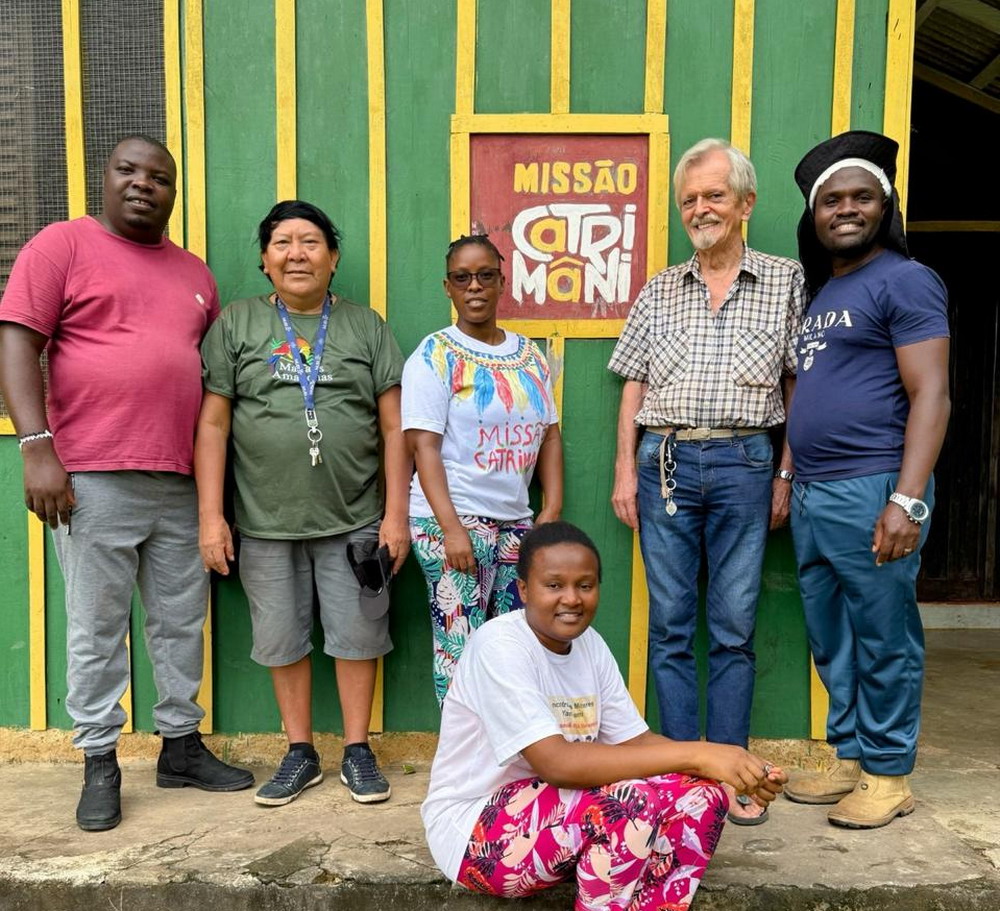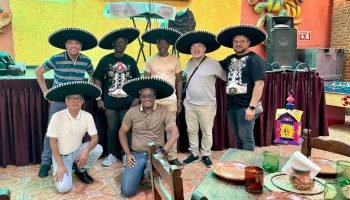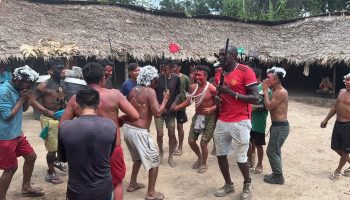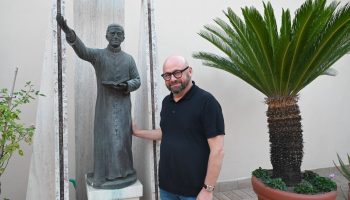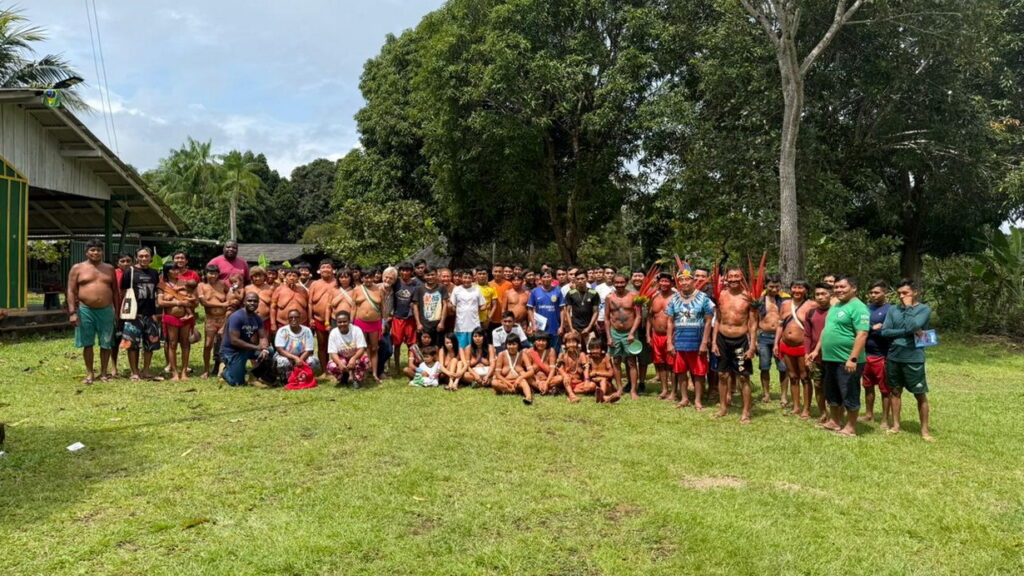
Located in the heart of the Brazilian Amazon rainforest, the Catrimani Mission experienced a historic moment from August 25 to 27, 2025: the celebration of 60 years of the presence of Consolata missionaries among the Yanomami people.
By Catrimani Mission *
Founded in 1965 by Fathers Bindo Meldonesi and Giovanni Calleri, 250 kilometers from Boa Vista, the Catrimani Mission has become one of the most significant projects of the Catholic Church focused on supporting communities on the border with Venezuela. It represents a model of respectful presence among the Indigenous peoples of Brazil.
More than 180 Yanomami participated in the gathering, coming from different communities to join missionaries, Indigenous leaders, and guests in celebrating six decades of coexistence, friendship, and struggle for life and dignity. Among those present were Brother Carlo Zacquini, an 88-year-old Italian who arrived at the Mission in 1968 and dedicated his entire life to the Yanomami people, and the great leader and shaman, Davi Kopenawa, president of the Hutukara Yanomami Association (HAY), internationally recognized as a prophetic voice in defense of his people and the forest.
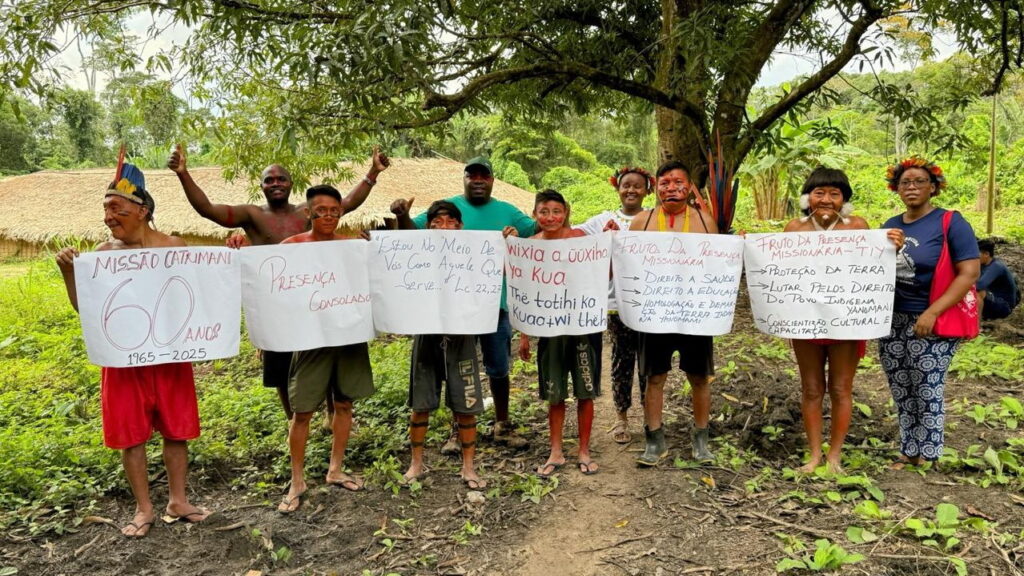
Memory and the Path of the Mission
The gathering began with the celebration of the Eucharist, remembering the missionaries who, over these six decades, dedicated their lives to the mission. The event was more than a celebration: it became a space for reflection, memory, and sharing of experiences between missionaries and the Yanomami people, reliving together the steps of this long journey of faith and solidarity.
Speaking about the presence of the Consolata missionaries among the Yanomami, Brother Carlo Zacquini presented a timeline of the Mission’s history. He recalled the arrival of the first fathers—Giovanni Calleri and Bindo Meldonesi—, the construction of the first buildings, the opening of the airstrip, and, above all, the struggles they fought: against epidemics, against invaders, and for health care, education, and the demarcation of the Yanomami Indigenous Territory, which was officially recognized in May 1992 with more than 9.6 million hectares across the states of Amazonas and Roraima. This also led to the expulsion of thousands of gold prospectors (garimpeiros) who had invaded and exploited the area, marking a victory for the Indigenous cause and environmental protection.
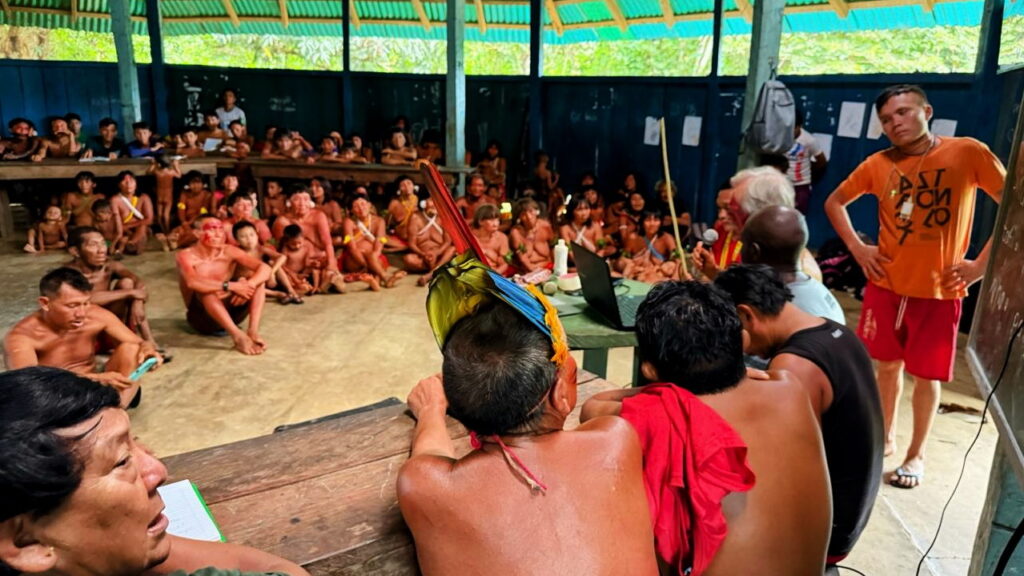
The Voice of Davi Kopenawa
In his address, the great leader Davi Kopenawa moved the audience by recounting his life story, from the initial fear at the arrival of the whites, to his formation as a recognized leader. He listed some significant episodes of his life:
The invasion of gold prospectors and the construction of the Perimetral Norte road;
The pain caused by epidemics, especially measles;
The first school and the learning of the Portuguese language;
His work at the National Indios Foundation (Funai) and the journey that led him to become the spokesperson for the Yanomami people in Brazil and worldwide.
Davi Kopenawa also reflected on the missionary presence and the role of the Catholic Church, recalling that in the past, elders did not know about medicines or foods from outside and saw illness as something strange.
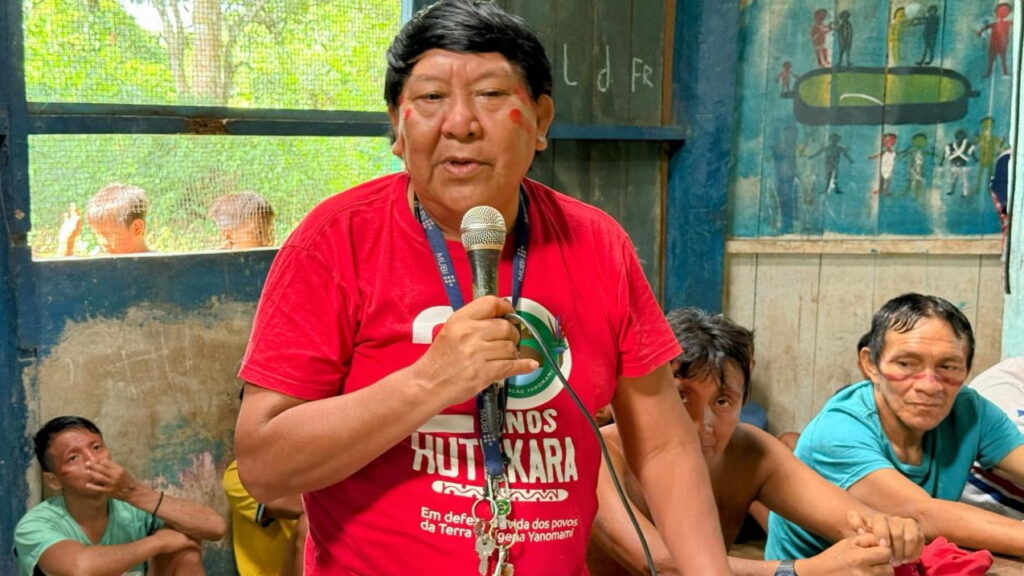
His words opened new horizons for reflecting on current challenges, such as dependence on government subsidies and the need to strengthen community autonomy.
The Perspective of Youth and Elders
The young people of the Hekura cultural awareness project had the opportunity to engage directly with Davi Kopenawa, raising questions related to mining (garimpeiros), the Perimetral road, education, his book The Falling Sky (2015), and the role of the different Yanomami associations. It was a moment of mutual learning, where stimulating questions revealed both the thirst for knowledge and the responsibility of the new generations.
The elders, who had been children when the missionaries first arrived 60 years ago, shared moving testimonies. Many expressed gratitude for the care they had received during the difficult times of disease, acknowledging that their survival was due, in part, to the support of the missionaries.
Dialogue Between Generations, Hope for the Future
The celebration of 60 years of the Catrimani Mission was marked by an intergenerational gathering in which elders, young people, and leaders were able to dialogue, exchange experiences, and look toward the future. More than just an anniversary, it was the renewal of an alliance of friendship and hope, where the missionary presence is lived as consolation, care, and commitment to life.
* IMC Team, Catrimani Mission, Roraima, Brazil.
